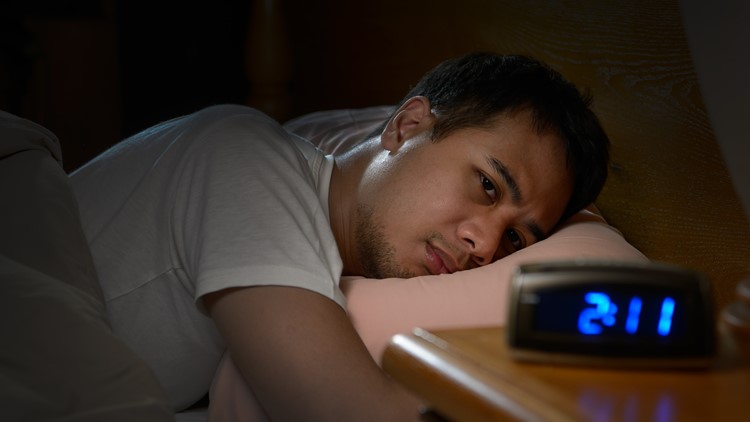GRAND RAPIDS, Mich. — If you’re losing sleep over COVID-19, you’re not alone.
In fact, some people have coined pandemic-related sleeplessness, ‘coronasomnia’.
Cleveland Clinic’s Michelle Drerup, PsyD, said people are stressed over the virus and everything that’s changed because of it.
“There are a lot of things impacting sleep based on the current situation,” she said. “Number one, probably most obvious, is increased anxiety and stress that people are experiencing. Not only in regards to the actual virus but also the impact on our financial, work, academic, things like that.”
Many Americans feel stressed due to COVID-19, and stress is often a trigger for insomnia.
In addition, our daily schedules have been turned upside-down, which can complicate sleeping patterns.
And being stuck at home, without exposure to sunlight, can disrupt our circadian rhythm.
Constant stress and lack of sleep can negatively impact the immune system and mental health may suffer. Chronic sleep issues may also lead to an increased risk of weight gain, diabetes and high blood pressure.
So what can we do to combat the stress, and get some sleep?
Drerup said our sleep patterns thrive on routine and consistency, so it’s a good idea to keep consistent sleep and wake times – even on weekends or days off.
Getting regular physical activity, and light exposure in the morning may help too.
And remember to wind down before bedtime and put your electronics away.
“Some things to make sure to be mindful of is the impact of being on our screens all the time,” said Drerup. “The light exposure that we’re getting, especially if that’s in the evening, as well as the content of what we’re doing can be very disruptive to sleep, so be mindful of that.”
If you continue to struggle with sleep despite making lifestyle changes, there are a couple of options you can try. Drerup said while medications may help in the short-term, cognitive behavioral therapy for insomnia is often a better option for most people long-term.
RELATED VIDEO:
►Make it easy to keep up to date with more stories like this. Download the 13 ON YOUR SIDE app now.
Have a news tip? Email news@13onyourside.com, visit our Facebook page or Twitter. Subscribe to our YouTube channel.




